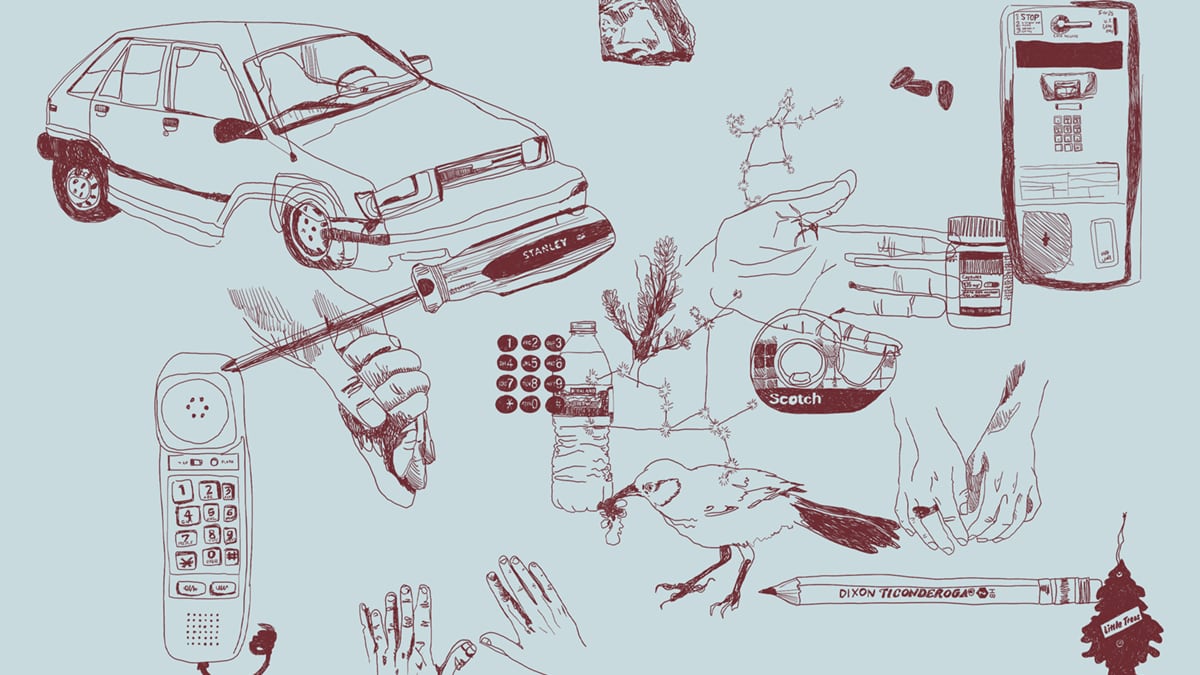Forget Zoom. For Abigail Browde, the best weapon against loneliness during the pandemic is a phone.
"I think there's truth in being on the phone together," she says. "I'm not pretending to be with you. I'm not pretending to see you. All I'm doing is listening. I feel like I've both been transported and been here, simultaneously."
That's the feeling Browde fights to capture with A Thousand Ways, a worldwide theatrical experiment she dreamed up with her partner, Michael Silverstone, the other half of the performing duo 600 Highwaymen. It's an audacious fusion of virtual theater and audience participation that begins with (Part 1): A Phone Call, which asks ticket buyers to talk on the phone with a stranger (the conversation is guided by a robotic female voice).
With A Phone Call's final Portland weekend approaching, Browde spoke to WW about the creation of A Thousand Ways—and what she learned when the next phase of the project, in which participants spoke to each other while separated by glass, debuted in Seattle and Germany.
WW: Could you talk about why you chose a phone conversation to be the foundation of A Thousand Ways?
Abigail Browde: In a pedestrian way, a phone call is the way that we summon togetherness when we can't be together, right? I think as the coronavirus came upon us, all of us found ourselves more glued to our Zoom meetings, one after the other, and something was lost. Even though we could see the faces of who we were "with," it put you in this nonspace. You were not really together, but you were simulating being together in an uncomfortable way.
How did you approach the writing, which had to work for different people and different cultures?
It started with us getting two people—maybe we knew them, maybe we didn't, but we knew they didn't know each other—and we would just do a conference call. And it started with me narrating, reading a list of instructions or questions or prompts, and getting people to respond to them.
Now it is no longer my voice giving the instructions—it's a prerecorded, automated robot system, and that limitation is part of the piece. The narrator can't repeat, go back, or modify based on your response. Our hope is that as a result of those limitations, the humanity of the two live people on the call—the ticketholders—comes to the forefront.
What were some of the questions you had to retire?
It seemed questions like "What are you like?" were almost too on the nose, as opposed to "I learned what you were sitting on and I learned what's hanging on your wall, and I learned the name of someone you went to elementary school with—and now, all of a sudden, I actually can draw a complex picture of what you're like."
Could you share a story or two that you heard from people who participated in A Thousand Ways?
We had someone who called in yesterday and left us a message and said: "I live alone. I haven't really spoken to anyone who I didn't know in almost a year. And I have a feeling of love for this person I don't know. I also am experiencing a tremendous amount of loss because I'm not going to find them again." I also heard from someone who said they had a dream about their person—a dream that they met and they became friends in real life, which I thought was pretty incredible.
What did you learn from seeing the production advance to (Part 2): An Encounter?
I think it has been powerful for folks so far. Because of the pandemic, we are viewing proximity to other people's bodies as a threat. If you come close to me, I equate that with danger. (Part 2) happens at a table, and there is a pane of glass between the two people attending—and, obviously, until we're safe to do otherwise, the folks attending wear masks.
Why do you think the simple facts of our lives have a power to connect us in ways that a grander statement can't quite manage?
When you describe the Grateful Dead poster you have on your wall or the framed photo of your grandmother's hand, it's incredibly specific. We use a rubric to categorize each other and size one another up all the time. It just feels like maybe there's more poetic space in details, rather than in the stuff that thwarts us on a daily basis.
PARTICIPATE: You can access A Thousand Ways (Part 1): A Phone Call at boomarts.org. Thursday-Sunday, Jan. 21-24. Sold out. (Part 2): An Encounter takes place in spring 2021.
